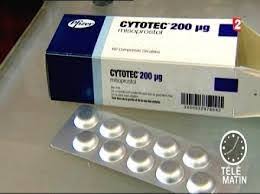Abortion pills and abortion in general is a sensitive and sometimes controversial topic, but it’s important to understand the options
available to those who may need it. One option is through the use of abortion pills, also known as
medication abortion. This method involves taking a series of pills to end an early pregnancy. But how do
abortion pills work, and what can someone expect during the process? In this article, we’ll take a closer
look at the science behind abortion pills, the steps involved, and what to expect during and after the
process. We’ll also explore the potential risks and side effects of medication abortion, as well as the legal
and ethical considerations surrounding this option. Whether you’re considering abortion pills for yourself
or simply want to learn more about this option, read on for a comprehensive guide to understanding how
abortion pills work and what to expect during the process.
The Different Types of Abortion Pills
Mifepristone

Mifepristone, also known as RU-486 or the abortion pill, blocks the hormone progesterone, which sustains pregnancy. It is used for medical abortion with misoprostol. It also treats Cushing’s syndrome and induces labor under medical supervision. Contact a healthcare provider before taking any medication.
Misoprostol

Misoprostol is a prostaglandin drug that prevents and treats ulcers caused by NSAIDs. It reduces stomach acid and increases protective mucus production. It is also used for medical abortion and postpartum hemorrhage. Although generally well-tolerated, side effects such as diarrhea and nausea can occur. Follow your healthcare provider’s instructions for safe and effective use.
There are two types of abortion pills in Johannesburg safe abortion pills in Johannesburg are available, as Mifepristone, and Misoprostol. Both of these are effective
in terminating an early pregnancy, but they work differently. Mifepristone is a hormone blocker that stops
the production of progesterone, which is essential for maintaining a pregnancy. Once the pregnancy is no
longer receiving the hormone, it will detach from the uterine wall. Misoprostol, on the other hand, is a
prostaglandin that causes the uterus to contract and expel the pregnancy.
It’s important to note that medication abortion can only be used up to 10 weeks after the last menstrual
period. After that, a surgical abortion may be necessary. Additionally, abortion pills are only available
with a prescription from pharmacy or you may get abortion pills from a licensed healthcare provider. It’s illegal to buy or sell abortion pills without a
prescription.
Eligibility for Abortion Pills
Not everyone is eligible for medication abortion. It’s important to talk with a healthcare provider to if you plan on purchasing abortion tablets so they can
determine if this method is right for you. Some factors that may affect eligibility include the length of the
pregnancy, medical history, and allergies to medication.
Additionally, it’s important to have a support system in place during and after the process. This can
include a trusted friend or family member, a therapist, or a support group. Taking care of your mental
and emotional health is just as important as taking care of your physical health.
What to Expect During the Abortion Process

As with any medication, there are potential side effects associated with medication abortions. These can include nausea,
vomiting, diarrhea, fever, chills, and headache. Additionally, the person may experience heavy bleeding
and cramping, which can be managed with pain medication. It’s important to talk with a healthcare
provider about managing these symptoms and what to do if they become severe.
During the abortion process, the person will experience cramping and bleeding as the body expels the
pregnancy. This can be uncomfortable and painful, but it’s important to stay hydrated and rest as much
as possible. Additionally, it’s important to have access to a comfortable and safe space during this time.
After the process is complete, the person may experience bleeding and spotting for up to two weeks. It’s
important to avoid sexual activity and use pads instead of tampons during this time to reduce the risk of
infection.
What to expect after an abortion is done
The abortion process itself is quick and relatively painless, with many individuals describing the experience as similar to menstrual cramps. However, it’s important to note that individuals may experience severe cramping for up to one or two days afterward, and bleeding may last for up to two weeks.
Additionally, pregnancy symptoms usually subside within a day or two following the procedure.
It is also important to note that all individuals who undergo dilation and evacuation (D&E) should be given prophylactic antibiotics. Finally, it is worth mentioning that the cost of an abortion can vary depending on the type of procedure because in-clinic abortion procedures are more expensive than medical abortion procedures. and the clinic or hospital you visit. Make sure to check with your doctor or clinic before beginning the process in order to make sure you know exactly how much it will cost.
It is also important to know that healing after abortion healing isn’t a linear process; it’s ok to go back and forth between feeling relieved, regretful and other emotions.
Follow-Up Care After Taking Abortion Pills
After taking abortion pills, it’s important to have follow-up care with a healthcare provider. This can
include a physical exam and ultrasound to ensure that the pregnancy has been fully terminated.
Additionally, the person may need to take a pregnancy test a few weeks after the process to ensure that
they are no longer pregnant.
It’s also important to talk with a healthcare provider about birth control options to prevent future
pregnancies. There are many options available, including hormonal birth control, intrauterine devices
(IUDs), and condoms.
Misconceptions About Abortion Pills
There are many misconceptions about abortion pills, including that they are dangerous and increase the
risk of infertility. However, research has shown that medication abortion is safe and effective, with a
success rate of over 95%.
Additionally, there is no evidence to suggest that medication abortion increases the risk of infertility. In fact, studies have shown that there is no difference in fertility rates between those who have had a
medication abortion and those who have not.
Conclusion: Understanding the Importance of Abortion Access
Abortion access is a crucial aspect of reproductive rights and healthcare. It’s important to understand the
different options available to those who may need it, including medication abortion. While the process
can be uncomfortable and painful, it’s a safe and effective way to terminate an early pregnancy.
If you or someone you know is considering medication abortion, it’s important to talk with a healthcare
provider to determine if it’s the right option. Additionally, it’s important to have a support system in place
to manage any physical, emotional, or mental side effects.
Overall, understanding the science behind how abortion pills terminate pregnancies and what to expect during the process is an
important step in advocating for reproductive rights and healthcare.
Share with friends!





